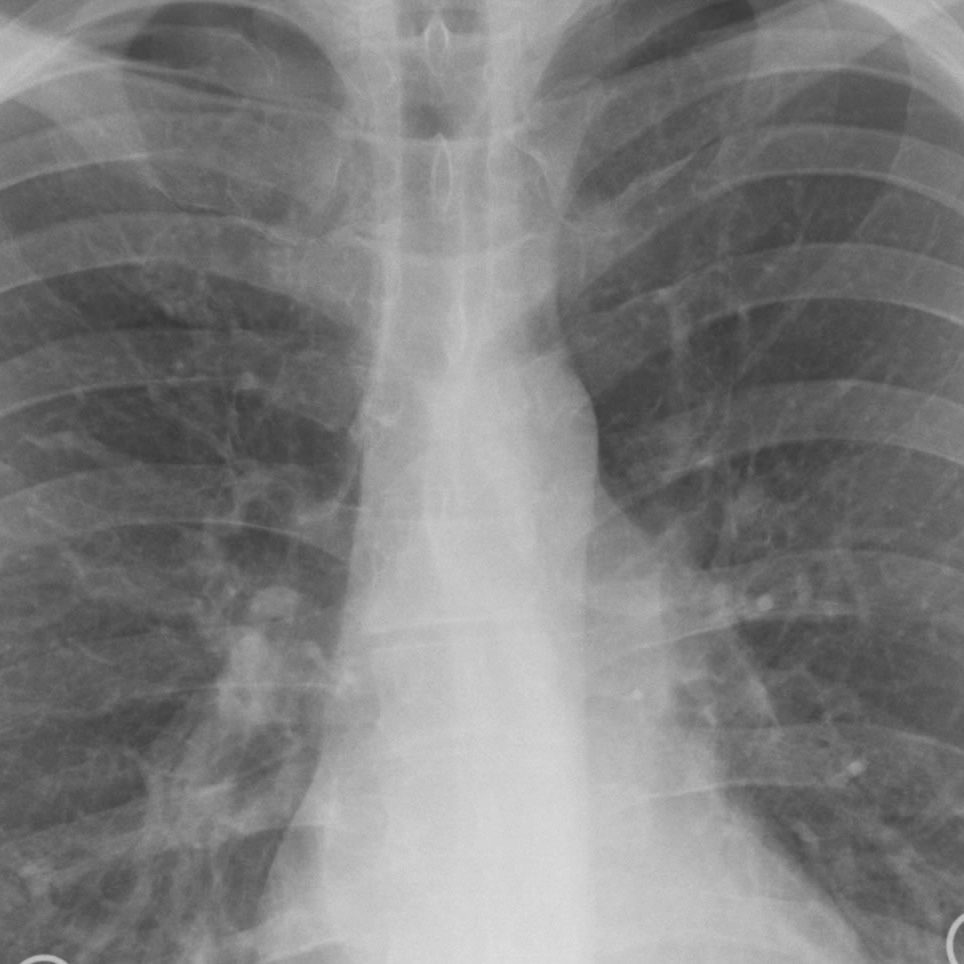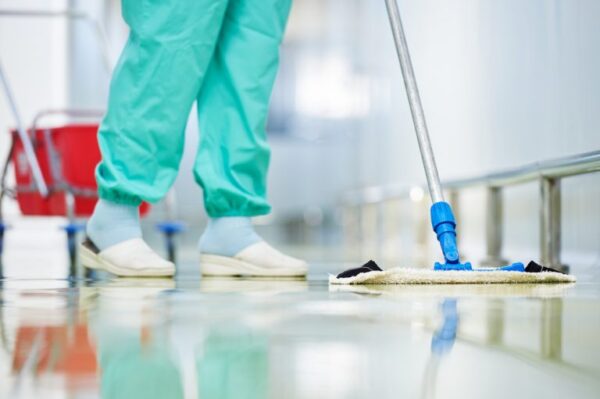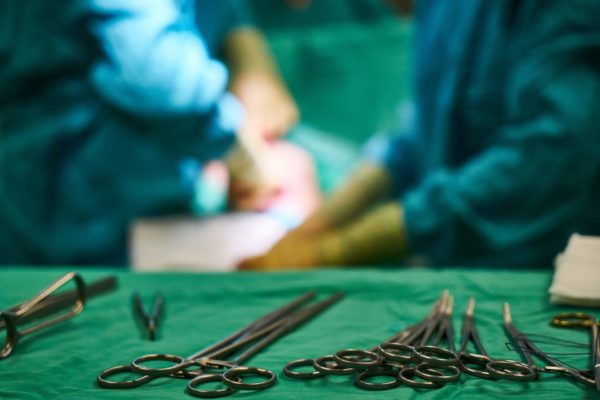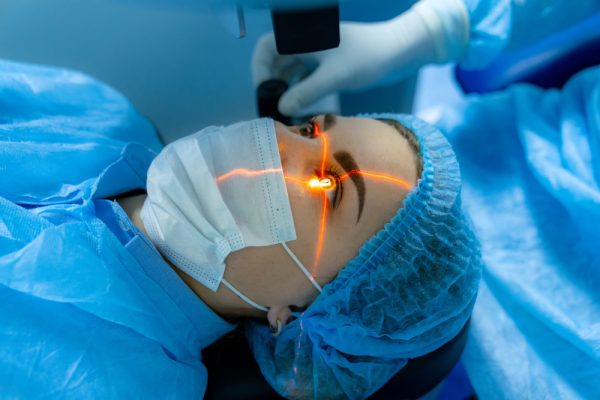
This sector divides into two distinct areas: diagnostic imaging of a patient and pathology, the diagnosis of disease based on analysis of bodily fluids and tissues. The privatisation of diagnostics and pathology services has been ongoing for well over a decade and several companies are now well established with large long-term contracts.
As many of these services, in particular in pathology, are not patient-facing, the involvement of private companies is often much less obvious than in clinical services. An acceleration of privatisation in these sectors has been driven by the Covid-19 pandemic, with its massive increase in testing capacity, and the development of Community Diagnostic Centres.
Last updated: July 2024
Recent Developments
From 2020 to early 2024 there was an acceleration in the privatisation of diagnostics through the development of community diagnostic centres (CDCs) under the then Conservative government.
In late 2020, NHS England advertised a multi-year framework agreement worth up to £10bn to provide services to increase NHS capacity, including diagnostics.
The first contract award notice 2021/S 028-070725 included the details of the 61 suppliers that had entered into the frameworks agreement in February 2021, then Contract Award Notice 2021/S 028-070725 in April 2021 includes an additional 24 suppliers. A further award notice in June 2021 includes more suppliers. Many diagnostics companies are now listed on the contract, including InHealth and Alliance Medical, the two largest in the UK.
Then in June 2021 a framework agreement for the CDCs was advertised - Invitation to Tender For: Community Diagnostic Hubs (CDH) Framework Agreement, worth up to £10 bn over five years. The award notice was published in March 2022 and included many private companies, including InHealth, Alliance, Perspectum, Omnes Healthcare, Circle, and Ramsay.
Now the companies are listed on the framework, contracts can be awarded for the CDCs without any further tendering process.
Whilst the companies were applying to be on the framework contract, NHS England have been choosing locations for the CDCs. In December 2022, 19 more locations were announced for CDCs by the then Health and social care secretary Steve Barclay, which took the total approved to 127. By September 2022, there were 92 CDCs up and running and there was a target of “160 CDCs to perform up to nine million additional tests a year by 2025”.
In August 2023, the Conservative government announced 13 new CDCs, including eight privately run ones.
Five of these CDCs will be run by the private company InHealth and operate in the South West of England, with permanent sites fully opening in 2024 in Redruth, Bristol, Torbay, Yeovil and Weston-super-Mare.
Three others that will be privately-run will open in Southend, Northampton and South Birmingham were set to open by the end of 2023. There are already four CDCs run by the private sector that are already operational in Brighton with the not-for-profit Sussex MSK Partnership, North Solihull, Oxford run by Perspectum, and Salford run by InHealth.
An investigation by OpenDemocracy reported in August 2023 that many of the CDCs on the government's list of those in operation are not actually open and running and years away from being open. In August 2023 the Department of Health and Social Care (DHSC) claimed 114 centres were open across the country, but OpenDemocracy could only find evidence of 73 centres that were open, and some of those are in mobile units. Local NHS hospital trusts and Integrated Care Boards (ICBs) responsible for 32 of the CDCs listed as open told OpenDemocracy that they will not be operational until later in 2023 or even 2024.
The background to CDCs is outlined below.
Privatisation
A long history of privatisation
The private sector is involved in all aspects of NHS diagnostics and pathology - from MRI scans to identification of bacteria in infected tissue, from genetic testing to a simple hearing test - every aspect of diagnosis for the NHS is now carried out somewhere in the country by a private company under contract to an NHS organisation.
Work by the NHS Support Federation has found that diagnostics has been one of the leading areas in terms of number of contracts for well over a decade.
This sector divides into two distinct areas - diagnostic imaging, and pathology, the diagnosis of disease based on analysis of bodily fluids and tissues. Each area has seen privatisation take place in a different way.
Diagnostic Imaging
Privatisation of diagnostic imaging was boosted by the Health and Social Care Act 2012. Contracts in this area are varied and include framework contracts, short-term contracts to clear a backlog of work and standard contracts. Long term examples include:
- In October 2023, a contract worth over £92 million was awarded for community diagnostic services in North East London to Omnes, Healthshare Ltd, and Inhealth.
- A framework contract was published in October 2022 that allocated £260mn for the provision of radiology reporting, pathology reporting, pathology referral testing, and mobile diagnostic imaging. The framework agreement covers 4 years maximum, 2 years initial period, with the option to extend for up to 24 months. Over 20 private companies are listed including Inhealth, Medica, 4Ways Healthcare, Radiology Reporting Online, and Backlogs Ltd.
- In October 2021, 37 companies, including diagnostic companies, were awarded places on "NHS Workforce Alliance Framework Agreement for Insourced Services to Support the Provision of Healthcare Services by NHS and other public bodies (including Clinical Services)" framework contract. The full value of the framework was up to £2 billion and it began in November 2021 and ends in October 2025.
- In mid-2021, a multi-year framework agreement was advertised by NHS England. It is worth up to £10bn and is seeking companies/organisations to provide services at around 150 planned new community diagnostic hubs. Places on this framework were awarded in March 2022.
- Diagnostic services were included within NHS England's Increasing Capacity framework contract over four years and several companies were listed on the framework, which began in April 2021, including Alliance Health and InHealth. A further 52 suppliers were added to the framework in August 2022.
- A Framework Agreement for Outsourced Radiology (Remote Teleradiology) Reporting Services worth £32 million awarded to six private companies by the Surrey and Borders Partnership NHS Foundation Trust in December 2019.
Over the years hospital trusts have signed short-term contracts, often only a month long, for private companies to help them reduce backlogs in diagnostic procedures and imaging interpretation. A good example is a contract between University Hospitals Birmingham NHS FT with Medinet Clinical Services for insourcing of endoscopy services for the period of 1 month from July 2024 to August 2024 worth £387,325, whereby the company carries out procedures within the Trust's hospitals.
A notable example of the major privatisation of diagnostics is the way PET-CT scanning has been commissioned across England in the last decade.
In 2014, NHS England commissioned the first lot of contracts for PET-CT scanning (the phase I procurement). These covered much of the North and East of England.
Alliance Medical was awarded all four regional lots of the PET-CT contract managed by the East of England strategic projects team. The remainder of PET-CT services are provided by individual trusts, charities and partnerships.
In 2017, the regions not covered by phase I were included in the phase II procurement process. In March 2019, the first lot was awarded in the process, this was to InHealth and covered the Thames Valley (Oxfordshire and Buckinghamshire). This award was opposed by local NHS organisations and councils (see below).
Diagnostic networks and community diagnostic centres
The Long-term plan published in January 2019 discussed the need for diagnostic services to be reorganised and proposed the setting up of networks and hubs as a way to reduce waiting times for scans and make more efficient use of staff. This opened up diagnostics even further to an influx of private companies.
In late April 2021, NHS England produced guidance for setting up these networks. NHS trusts had until 2023 to set up separate entities to run their diagnostic imaging services. NHS England notes in the guidance that the networks will be “significant operating businesses in their own right”, and must have a “degree of autonomy” and “separation from the trusts”.
NHS England gave the trusts seven options for setting up a network, one of which was “outsourcing” of the entire network to a commercial partner, this would include “ownership of the capital assets required for delivery of the service, to a commercial partner”.
The other options were: collaboration or alliance contracting, which both rely on all trusts being involved with decision making; a “host trust” that would use delegated authority from other network members to make decisions; a joint venture with a limited liability partnership model; a joint venture through a limited liability partnership; or a community interest company (CIC). The joint ventures and the CIC would all need HMRC approval and only be possible for NHS foundation trusts.
Trusts were left to decide themselves what option is the best way forward, but NHS England has provided notes on the feasibility of each model. Only “Collaboration” between trusts and “Outsourcing” to a commercial partner get a “Highly feasible” note in the comparison table of the different options.
In early 2021, NHS England advertised a multi-year framework agreement worth up to £10bn to provide services at around 150 planned new community diagnostic hubs. The document said vendors could win a place on the framework for three years, with an option to extend for a further 24 months for a total of five years. Places on this framework were awarded in March 2022 and included many private companies among the 52 suppliers.
It said it was anticipated the framework would be opened to potential new providers every 12 months within the term and the framework could be “refreshed” so new or existing providers could “apply for new modalities or sub-modalities relating to the services”. The diagnostic hubs will provide a range of services, including, imaging capacity for CT, MRI, ultrasound, plain X-ray; cardiorespiratory capacity: including echocardiography, ECG and rhythm monitoring, spirometry and some lung function tests, support for sleep studies, blood pressure monitoring, oximetry, blood gas analysis; pathology services: including phlebotomy; endoscopy facilities; and consulting and reporting rooms.
The HSJ reported that the Independent Healthcare Providers Network chief executive David Hare welcomed the framework, saying “a mixed economy” of independent and NHS providers would likely be used for the new CDHs.
In December 2022, 19 more locations were announced for CDCs by the Health and social care secretary Steve Barclay, which takes the total approved to 127. By September 2022, the DHSC reported that 92 CDCs were up and running and the government has a target of “160 CDCs to perform up to nine million additional tests a year by 2025”. Whether these CDCs were actually up and running is unclear, however.
In early August 2023, the government announced 13 more CDC, eight of which will be run by private companies. The sites in the South West, located in Redruth, Bristol, Torbay, Yeovil and Weston Super Mare, will be operated by diagnostics company InHealth. Other private facilities will also be located in Southend, Northampton and south Birmingham. Just five of the 13 will be run by the NHS.
An investigation by OpenDemocracy reported in August 2023 that many of the CDCs on the government's list of those in operation are not actually open and some are years away from being open. In August 2023 the Department of Health and Social Care (DHSC) claimed 114 centres were open across the country, but OpenDemocracy could only find evidence of 73 centres that were open, and some of those are in mobile units. Local NHS hospital trusts and Integrated Care Boards (ICBs) responsible for 32 of the CDCs listed as open told OpenDemocracy that they will not be operational until later in 2023 or even 2024.
Radiology
The Royal College of Radiology estimates that UK NHS trusts and health boards spent £122m on outsourcing radiology in 2021.
The upturn in business is clear from the accounts of the private companies involved. Two of the largest companies operating in the UK, Medica and 4Ways Healthcare, reported big jumps in turnover in 2021 and 2022. Medica, reported a £47.1m turnover in 2021 in the UK, up 33% on 2020, this was followed by an increase to £54m in 2022. 4Ways Healthcare reported £34.5m turnover in the year to March 2022, up 70.5% on 2021, then up to £42.2m in the year to March 2023, reportedly due to an increase in work from the NHS.
The shortage of staff was made worse by the refusal of the Conservative government to make changes to the pension rules in the NHS. Many consultants are reluctant to do extra sessions because of the potential impact of the extra income on their pensions, with breaches of the lifetime and annual allowances incurring penalties.
Consultants have been turning to the formation of limited liability partnerships (LLP) as a way to carry out work that otherwise would have been given to private companies. Several of these have already been set up, with HSJ reporting that in the Buckinghamshire Healthcare Trust, where there is a backlog of 8,000 to 9,000 unread scans, an LLP has been set up and the consultants are waiting for the trust to contract with it, so they can carry out extra work.
In November 2022, HSJ reported that NHS England is assessing the viability of establishing an NHS-owned consortium to bring some of the diagnostic work currently being done for profit in the private sector back into the health service. However, HSJ also reported that a meeting between NHSE and the private sector on joint venture arrangements was expected soon.
The Society of Radiographers (SoR) has criticised Government announcement around the Community Diagnostic Centre (CDC) programme. Society Executive Director Dean Rogers noted that "private companies don’t have radiographers on the payroll sat around idle. Today’s announcement talks about a relatively small increase in available equipment but yet again says nothing about additional staffing capacity.”
SoR leaders say it is another missed opportunity to start to resolve the real problem behind rising waiting lists – namely the lack of diagnostic staff and total capacity.
Pathology
The hub and spoke model
Government reports produced in 2006 and 2008 encouraged a new model of organisation for pathology departments, which reduced the number of hospitals that had their own pathology services. Hospital trusts would instead share services with neighbouring trusts - this was known as the hub and spoke model of working.
Although the reports themselves did not explicitly advocate the use of the private sector, some areas went down the route of using private companies. In 2019, there were four partnerships between pathology departments in hospital trusts and private companies (details below).
In September 2017, NHS Improvement reiterated the development of the hub and spoke model and outlined plans to create 29 pathology networks across England in a bid to save £200 million by 2021. The NHSI plan calls for 105 individual hospital pathology services to be linked together through the hubs, to create networks which will each serve populations of between 1.5 million and 2 million. The hub will be a lead provider, where complex and high volume tests are processed, while the spoke centres will provide more routine hospital laboratory services.
In 2012, the Surrey Pathology Service was established, which expanded in 2017 and became the Berkshire and Surrey Pathology Network, an NHS-led pathology network joint venture between five NHS Trusts - Frimley Health NHS Foundation Trust, Royal Surrey NHS Foundation Trust, Ashford & St Peter’s Hospitals NHS Foundation Trust, Royal Berkshire NHS Foundation Trust. In 2021 it was joined by Surrey and Sussex Healthcare NHS Trust.
By November 2019, only 16 of the planned 29 pathology networks had agreed on a model. The last update was the report "Pathology networking in England: state of the nation" published in November 2019, which has been archived by NHS England. No new information appears to be available from NHS England.
In September 2018, eight hospital trusts located in South London, Surrey and Sussex advertised a pathology contract worth more than £2.2bn which aims to link all the trusts. The contract covers the full range of pathology disciplines for the trusts. This contract was never awarded, but the South and East London hospital trusts continued with the hub partnership with Viapath, which was later replaced with Synlab (see below).
Lewisham and Greenwich Trust, refused to be part of the procurement because it is considering a solution that keeps its pathology provision within the NHS. And in 2020, Lewisham and Greenwich Trust, teamed up with North London trusts Barts Health and Homerton University Hospital. A business case was approved in July 2020; Barts’ Royal London Hospital site in Whitechapel will be the hub site, while the other hospitals will keep an essential services laboratory. Lewisham and Greenwich’s Queen Elizabeth Hospital will also have capacity to analyse a high volume of samples sent from GPs.
In March 2021, all laboratory staff transferred to Barts Health Trust employment when a three year transition period will begin. The partnership then will run for nine years.
A hub and spoke model was planned for development in Kent and Medway, but in May 2020, the trusts decided not to go ahead with changes to pathology services which could have led to greater centralisation and even outsourcing. The current configuration of three hubs and four essential service laboratories is likely to continue. Board papers show that there was little enthusiasm for outsourcing or a commercial partner.
The merger of pathology into one large laboratory at four trusts in Lancashire and South Cumbria as a ‘hub and spoke’ model was abandoned in February 2023 due to delays in receiving £31m of capital that was allocated to the scheme in 2018 by the Department of Health and Social Care .
After four years working on the plans, including a hard-fought and hugely contentious consultation with staff, work was “paused” in 2022 due to uncertainties around the capital funding. Mark Hindle, who was managing director for the project until retiring, told HSJ the plans for a central hub have effectively now been scrapped, as the system could not continue deploying resources to the project without certainty over the funding. He added: “It’s such a waste of public money to have gone five years down this line and then just have to stop. What kind of way is that to run a health service?”
Covid-19 pandemic - test & trace
The Covid-19 pandemic was a boom time for private companies involved in testing for virus and the associated infrastructure needed to test vast numbers of the population, such as testing centres, testing kit manufacturers, plus staffing agencies.
In March 2020, the Conservative government brought in emergency regulations for procurement, which meant that contracts were awarded without going through the usual competitive tendering process. Although deemed necessary at the start of the pandemic, they were still in place over a year later. The emergency regulations were combined with what has been termed the "VIP" lane for companies with political connections to the Conservative party. As a result it appears that billions of pounds worth of contracts have been awarded to companies with political connections rather than being the best placed to fulfil the contract.
The situation, including court cases and reports from the ONS, can be found here on our website. The Labour government elected in July 2024 has promised to appoint a commissioner tasked with recouping billions from Covid contract fraud. The chancellor, Rachel Reeves, is understood to believe the Treasury can recoup £2.6bn from waste, fraud and flawed contracts signed during the pandemic.
Due to the volume of people needing to be tested as quickly as possible, the government needed to set up both centres where the tests could be carried out and the infrastructure to analyse these tests quickly. The whole process also needed to be linked to the tracing of positive cases and their contacts. In all these processes - the testing centres, analysis of tests and the tracing of positive cases - there was a major influx of private companies.
Companies involved include management consultants, Deloitte, which managed the test booking and results at a lot of test centres, and a roll call of familiar outsourcing companies; Sodexo, Mitie, G4S and Serco were all involved with the operation of the testing centres.
The following articles give more information on the test centres and the contact tracing:
Test and trace: govt devise shakeup as privateers fall short
Serco: the company we need for NHS test and trace?
Track and trace failings risk safe release from lockdown
The great consultancy boom – from Covid to ICSs
The UK has a network of pathology labs where the tests could have been analysed, however instead of investing heavily in these and expanding their capacity, the government decided to create a new network of “super-labs” run primarily by private companies to process the rising number of tests for Covid-19. These were due to run in parallel to the NHS pathology laboratories. The Lighthouse Labs as they became known were created through a partnership between the Department of Health and Social Care, and a number of commercial companies and academia, including Medicines Discovery Catapult, UK Biocentre and the University of Glasgow, AstraZeneca, BioAscent Discovery Ltd and GSK.
In July 2020, the Department of Health and Social Care said it was creating a new national framework for testing which would replace current arrangements. The framework agreement is worth an estimated £5bn to commercial bidders. This works out at £2.5bn per year and will be managed by Public Health England (PHE - now the UK Health Security Agency). The framework would support all five pillars of the UK testing strategy (see below).
The framework lists a number of contractors whose services could then be called on by all four nations, and by NHS trusts and local authorities. It was in place for two years, with an option to extend.
NHS sources said they had been told the cash would be used to fund an expansion of Lighthouse laboratories, created in April 2020 to boost Covid-19 testing capacity. Over the following months, Lighthouse mega labs were set up by the DHSC at sites in Alderley Park, Cambridge, Glasgow, Milton Keynes and Newport, all of which are “operating with a range of partners” including “commercial suppliers”. And in September 2020 the department announced four more sites – at Charnwood, Newcastle, Brants Bridge and Plymouth.
In November 2020, Matt Hancock announced an expansion of the government’s ‘mega lab’ Lighthouse project, with two new mega labs to open in early 2021 – one in Leamington Spa, the other at an unidentified location in Scotland. These were to represent a permanent part of the UK’s new diagnostics industry, however this turned out not to be the case (see below).
The DHSC admitted that the Lighthouse lab network, created using an emergency procurement policy, is entirely separate to England’s existing complement of NHS and PHE laboratories, although it claims NHS trusts remain as potential ‘suppliers’. Three of the mega labs announced in September 2020 will, however, be NHS-managed.
By February 2021, the new Lighthouse labs were already being scaled back even before they opened. The new multi-million pound labs in Gateshead and Plymouth, announced in 2020, were among those to see a big cut in daily testing by as much as 50% compared with original plans. Other smaller laboratories closed, including one in Charnwood, Loughborough, run by PerkinElmer, and the Cambridge lab, run by AstraZeneca and Glaxosmithkline.
The announcement in Spring 2022 of the ending of free Covid-19 PCR tests precipitated lab closures around the country. The Integrated Covid Hub North East, which comprised Gateshead's Lighthouse Lab which tested Covid-19 samples, an innovation lab in Newcastle and the Co-ordination and Response Centre which was used to supplement public health messaging and data around Covid, closed in April 2022 following the Government's decision to end free testing for the virus. The Brants Bridge and Plymouth labs have also now closed.
The Lighthouse mega-lab in Leamington Spa, named the Rosalind Franklin Laboratory, opened in July 2021 with capacity to process 150,000 tests per day. This laboratory was to play a role in the detection of new variants. Staff for the laboratory were engaged via the company Medacs. In February 2023, however, it was reported that the Rosalind Franklin Laboratory is now set to to close, with all but 50 of its 700 agency staff given 4 weeks notice. At its peak the lab was processing at the rate of 8.5 million tests per year. But now a statement from the UKHSA says it can scale up PCR testing quickly if required – for example, if a new concerning variant meant increased PCR testing was necessary or in the event of a future pandemic.
At its peak in February 2022, PCR testing capacity for Covid-19 was at just over 1 million, this was halved by April 2022 to just over 400,000, and halved again by March 2023 to just over 200,000. The rapid reduction in capacity followed the government's decision to end free PCR testing for Covid-19.
In October 2021, The DHSC awarded places on a 4-year UK-wide Framework to cover Assisted Testing requirements for the DHSC and other Contracting Authorities. The value of the framework is £386.6 million. The four companies awarded a place - IQVIA, Sodexo, Reed, and Abbott - were all involved in the test and trace system. The companies can be called upon to support the DHSC (and other authorities) with outbreaks of viruses or diseases that require a testing programme. The services they could be called upon to provide, include the provision of Assisted Testing Services, training of own workforce or third parties, support of pilots and service evaluation of test devices.
Issues
Over the years several issues have been found with the use of private companies in both diagnostic imaging and pathology.
Test and Trace
The Test and Trace system under which almost all contracts were awarded to private companies has experienced numerous issues, including data errors, failure to achieve targets, and errors in testing. Chair of the Public Accounts Committee Dame Meg Hillier, said: “The national test-and-trace programme was allocated eye-watering sums of taxpayers’ money in the midst of a global health and economic crisis. It set out bold ambitions but has failed to achieve them despite the vast sums thrown at it."
It is still unclear what exactly has happened to the £37 bn allotted to the system and primarily given to private companies. An in-depth article can be found here. In July 2024, the new Labour chancellor, Rachel Reeves, announced that it will appoint a commissioner tasked with recouping billions from Covid contract fraud. The chancellor is understood to believe the Treasury can recoup £2.6bn from waste, fraud and flawed contracts signed during the pandemic.
Pathology
In pathology there were problems with the company Viapath, established by Serco in partnership with Guy’s and St Thomas’ hospitals, In 2014, Viapath was found to have overcharged the NHS for diagnostic tests. The venture was dogged by allegations of cost-cutting and clinical failings. Internal documents showed that senior consultants claimed that staff cuts and a lack of investment since privatisation left some laboratories close to disaster.
In internal emails clinicians said the company had an “inherent inability… to understand that you cannot cut corners and put cost saving above quality.” The trust and Viapath say the problems have now been resolved. But this only happened after the intervention of senior medical staff and changes to the structure of the joint venture that reduced Serco’s role.
In June 2017 during a quality assurance visit to Pathology First laboratories major issues with quality were found. A report by Public Health England concluded that: 'A number of working practices, particularly within the laboratory, compromise service quality and potentially patient safety'.
Pathology First is run by Southend University Hospital NHS Foundation Trust, Basildon and Thurrock University Hospitals NHS Foundation Trust and the private company, Integrated Pathology Partnerships. Pathology First provided pathology services to over 100 GP practices.
As a result of issues with quality, 4,668 smear test samples require re-examination. By June 2018, NHS England reported that re-examinations have revealed that 31 women were incorrectly given the all-clear, despite their smear tests revealing symptoms related to cervical cancer.
Meanwhile, re-examination to date has resulted in 31 women being told they have abnormal results, despite previously being given the all-clear; and 95 women have been told to re-visit their GP practice for a new smear test.
Coronavirus testing laboratories
The setting up of the Lighthouse Labs was of great concern to clinical staff working in and around the NHS as it led to a parallel system bypassing the existing network of NHS labs.
In April 2020, The Lowdown reported that NHS scientific staff in south London had contacted the publication to express their frustration that while they have the capacity to process large numbers of tests, the NHS labs are struggling to get supplies of the kits and the reagents required.
In early April a former director of the World Health Organisation, Professor Anthony Costello, said 44 labs in the UK were underused.
There were also concerns of the qualifications of the staff who were being recruited to the ‘Lighthouse Labs’, who according to the architects of the plan include ‘highly qualified staff and volunteers.’
The President of the Institute of Biomedical Sciences (IBMS), the leading professional body for scientists, support staff and students in the field of biomedical science, also spoke out expressing concerns about the establishment of the new super-labs, including increasing competition for scarce resources and that NHS testing numbers will fall if their laboratories are competing with the testing centres for COVID-19 testing kits and reagents in a ‘Wild West testing’ scenario.
The IBMS statement also raised the issue of the quality of the work to be done by the new labs and the failure to involve the professional body:
“It is clear that two testing streams now exist: one delivered by highly qualified and experienced Health and Care Professions Council (HCPC) registered biomedical scientists working in heavily regulated United Kingdom Accreditation Services (UKAS) accredited laboratories, the other delivered mainly by volunteer unregistered staff in unaccredited laboratories that have been established within a few weeks. This has presented another key concern – in that we have not been involved in assuring the quality of the testing centres and are now being kept at arm’s length from their processes, even when they exist close to large NHS laboratories.”
The IBMS statement goes on to press for merging the existing NHS labs with the new testing centres into “one stream”.
The disconnect of the Lighthouse Labs from the NHS has led to problems with accessing test results for public bodies, such as councils and GPs. Efficient monitoring of infection rate and the targeting of infection outbreaks relies on being sent test results in a timely manner with information for contacting positive cases. However, for at least two months in 2020 (May/June) local health officials were not being given access to accurate and up-to-date information on where the infections were. The problems were due to IT systems and data protection issues. The lack of test information was blamed for allowing the virus to spread undetected in towns and cities including Leicester, which was ordered to enforce local lockdown measures in July 2020.
Test centres
There were numerous reports of problems at the test centres set up and run by private companies. The Guardian wrote of reports of long queues at some facilities of up to five hours, with motorists stuck in their cars for hours, forbidden from opening windows and unable to use toilets or find water, workers with appointments turned away because of delays, leaking test vials, wrongly labelled samples, and lost test results at Nottingham and Wembley.
The sites are operated by companies, such as Sodexo and Serco, but Deloitte is managing logistics and data, including booking tests, getting samples to the labs and communicating the results. There are reports of long waits for test results and people having to email numerous times to chase their results.
Diagnostic imaging
Financial insecurity
A major issue of allowing private companies to be involved with providing services to the NHS is the possibility of financial insecurity. Only eight months after the opening of a community diagnostic centre (CDC) set up in partnership between NHS's Somerset Foundation trust and the private cancer diagnostic and treatment company Rutherford Health, the company was placed into liquidation.
The stand-alone CDC, opened by Sir Mike Richards, the author of the 2020 report that pushed the idea of CDCs to expand diagnostic capacity, was part of a five year partnership deal with SFT begun in July 2020 (with the option to extend to ten years). The centre was to provide diagnostic services including Magnetic Resonance Imaging (MRI), Computed Tomography (CT), Ultrasound and X-Ray using equipment provided by Rutherford’s technology partner, Philips, in an effort to reduce the significant waiting lists for such procedures. Arrangements had to be made to transfer patients to other clinics.
Rutherford Health also had other contracts with the NHS – its four cancer centres treat private and NHS patients and it also held a two-year “framework agreement” with NHS England for cancer care.
PET-CT diagnostic imaging
There have been concerns around the phase I and phase II commissioning of PET-CT diagnostic imaging by NHS England.
After the phase I round of awards, in which Alliance Medical won a large portion, a consortium of hospital trusts lodged a formal challenge to the procurement decision.
The consortium consists of the University Hospitals of North Midlands Trust, Wirral-based Clatterbridge Cancer Centre Foundation Trust and the Royal Liverpool and Broadgreen University Hospitals Trust.
The scanner, the consortium would have used is based at Royal Stoke University Hospital but is partly owned by Keele University and was installed following a £1m research grant, and charity donations of £250,000.
The phase II award to Inhealth in the Thames Valley in early 2019 was met with horror by many in the local area and NHS employees, including the team that currently carries out scanning based at the Churchill Hospital in Oxford. The Churchill Hospital team has an international reputation for cancer care and would no longer be involved with the PET-CT scanning under the new contract.
The Guardian reported that doctors at the hospital said they were “disgusted” by the loss of the contract. The doctors warned that people receiving cancer treatment will now have to be taken by ambulance to two new locations where InHealth has its scanners. This could have a detrimental effect on their health.
Under InHealth’s plan, people with cancer being treated as inpatients at the Churchill would have been taken by ambulance to have a PET-CT scan at GenesisCare private cancer clinic at Littlemore, four miles away on the outskirts of Oxford.
The doctors are also worried about the quality and an increase in rescanning, which would lead to more suffering for the patients.
Another concern is the loss of expertise to the NHS as the expert team at the Churchill Hospital will no longer be required as the hospital will have to hand back its leased scanners.
As a result of pressure from MPs, doctors and the public, NHS England had to backtrack on certain aspects of the phase II award to InHealth in March 2019. The scanners will remain at the Churchill Hospital and continue to be used and operated by the current staff. However, InHealth still has the contract in the rest of the region and will set up scanners in Swindon and Milton Keynes.
Bestcare Diagnostics
In early 2020 Bestcare Diagnostics went into voluntary liquidation leaving several staff unpaid. The company had provided sonography services across much of Greater Manchester - including in Rochdale, Wigan and Oldham - over the previous four years. Lead commissioner Salford CCG stepped in to stop the Stockport-based company from practising in December 2019 due to ‘concerns over the quality of the service being provided'.
Bestcare Diagnostics was suspended by Coastal West Sussex CCG in 2018 over "quality" issues, with a clinical harm review initiated in 2019. In April 2021 the review found that 29 patients suffered severe or moderate harm due to quality issues with ultrasounds carried out by the independent provider. The review examined scans of 1,800 patients carried out by two sonographers employed by Bestcare Diagnostics.
The two sonographers involved worked in West Sussex between April and August 2018 carrying out non-obstetric ultrasounds, meaning issues with the scans potentially happened three years ago. Bestcare held an any qualified provider contract with the CCG from April 2017, although it is only scans carried out by two sonographers which have been reviewed.
NHS/Private
Pathology First
A collaboration between Basildon and Thurrock University Hospitals FT, Southend University Hospital FT, over 200 GP surgeries, and the private laboratory Integrated Pathology Partnerships (iPP a subsidiary of Synlab) which provides pathology services across south Essex. It was launched in October 2014. Major problems were found with this service during a quality assurance visit in 2017. This led to smear test samples from 2,500 women having to be re-examined.
Health Services Laboratory LLP
HSL describes itself as 'a progressive partnership' between the Australian company TDL (The Doctors Laboratory), UCLH (University College London Hospitals NHS Foundation Trust), The Royal Free London NHS Foundation Trust and North Middlesex University Hospital . It carries out all the routine and specialist pathology departments from these NHS Trusts.
Synnovis (Synlab, Guy’s & St Thomas’ NHS Foundation Trust and King's College)
The joint venture between Synlab, a German company, Guy's and St Thomas FT, and King's College Hospital FT began 1 April 2021 and will last 15 years. Known as Synnovis, the joint venture took over from Viapath, a joint venture between Serco and Guy's and St Thomas' Hospital Trust and King's College Hospital, that was for several years the largest pathology service provider in the UK, processing more than 22 million tests a year in London and Bedford.
Viapath was established in 2009 as a joint venture between Guy’s and St Thomas’ and Serco. King’s College Hospital joined them in 2010. In early 2020, Viapath lost the contract for covering a large swathe of south and east London and as a result Serco decided to withdraw from the venture. In June 2020 it was announced that King’s College Hospital FT and Guy’s and St Thomas’ FT will pay an undisclosed sum to Serco for its share of Viapath. In April 2021 it was reported in the HSJ that Serco received £15 million from Guy’s and St Thomas’ and King’s College Hospitals foundation trusts to leave the Viapath joint venture.
South West Pathology Services (SPS)
Southwest Pathology Services is a joint venture between Taunton and Somerset NHS Foundation Trust, Yeovil District Hospital NHS Foundation Trust and private sector partner – Integrated Pathology Partnerships (iPP) who are owned by Synlab. The joint venture was established in June 2012, serving a population of 500,000 and over 100 GP practices.
Companies
Alliance Medical
Alliance Medical is an independent provider of medical imaging services to health organisations across Europe. In the UK, the company provides a wide range of scanning techniques, including MRI and PET-CT, at 37 static sites and in 45 mobile units. The company has a 10 year contract for PET-CT scanning in NW England. It is owned by the South African healthcare company, Life Healthcare, which acquired Alliance Medical in 2016. Alliance runs CDCs in Oldham, South Tyneside, Taunton, and Colchester Hospital (Turner centre). For a full overview of this company see our Private Providers section.
InHealth
InHealth is the largest private supplier of diagnostic procedures in the UK and works for almost all hospital trusts. The company has a large number of individual contracts with NHS organisations, as well as being listed on several central framework agreements for screening services (NHS Supply Chain and NHS Shared Business Services National Procurement Frameworks), such as for interventional cardiology. The company is heavily involved with the setting up and running of community diagnostic centres. For a full overview of this company see our Private Providers section.
Everlight Radiology (formerly Radiology Reporting Online Ltd)
Everlight Radiology is an Australian company established in 2006. The company first entered the UK market in 2010 as Radiology Reporting Online – a partnership with University College London Hospitals NHS Foundation Trust (UCLH). The company has had numerous contracts with hospital trusts, some of short duration as the company is bought in to clear a backlog of images that need analysis. For example, in August 2017, the Queen Elizabeth Hospital King's Lynn NHS Foundation Trust, awarded the company a one month contract for remote radiology reporting services.
Other contracts are more long-term, for example in April 2018 Everlight Radiology was awarded the teleradiology tender for three Trusts across Mid and South Essex. The contract comprises urgent after hours emergency and routine radiology reporting services for Mid Essex Hospital Services NHS Trust, Basildon and Thurrock Hospitals NHS Foundation Trust and Southend University Hospitals NHS Foundation Trust.
The Doctors Laboratory Ltd
TDL's parent company, Sonic Healthcare Ltd , is an Australian clinical diagnostic organisation employing over 22,000 people. Sonic is one of the world's largest providers of clinical diagnostics, and offers extensive laboratory pathology services to the medical community in Australia, New Zealand, South East Asia, Germany, Belgium, Switzerland, Ireland, UK and the USA.
As well as the Health Services Laboratories partnership, TDL also has contracts with other trusts, community and acute, for managed pathology services.
Mediscan Diagnostics Services Ltd
Mediscan Diagnostic Services is a provider of ultrasound diagnostic services at 137 clinics across the UK. They also provide audiology, dermatology, ophthalmology, physiotherapy, MRI, and endoscopy services across 30 clinics. In several areas, Mediscan is under contract to reduce waiting times for the NHS.
Synlab/Integrated Pathology Partnerships
Synlab is a multinational company with a presence in 30 countries and 27,000 employees. In the UK it operates as Synlab and Integrated Pathology Partnerships (iPP).
iPP was established in 2010 to work in partnership with the NHS to deliver pathology testing services in the UK. iPP now conducts more than 24 million tests per annum and employs over 600 staff across seven sites in the UK.
Synlab was bought by the private equity company Cinven in August 2015. In 2021, Synlab was floated on the Frankfurt stock exchange.
iPP offers a full range of diagnostic tests and services ranging from phlebotomy, routine and urgent tests. As part of Synlab Southwest Pathology Services and Pathology First are provided through Integrated Pathology Partnerships (iPP). In addition, the company works with CCGs in community testing, point of care testing and phlebotomy.
Formed in 2012, Southwest Pathology Services (SPS) is a joint venture between Synlab, Somerset NHS Foundation Trust and Yeovil District Hospital NHS Foundation Trust. The partnership serves a population of around 500,000 and delivers services to the two Trusts and more than 100 GP practices.
Originally, there was a single site at each hospital with both undertaking similar urgent and non-urgent tests, but there is now a central ‘hub’ laboratory in Taunton with an ‘essential services laboratory’ on each hospital site to provide urgent testing.
Pathology First is a partnership between Synlab and Mid and South Essex NHS Foundation Trust, supporting Basildon and Thurrock Hospitals, Southend Hospital and more than 200 GP practices. It was formed in 2014 and provides services to a population of 750,000 in the East of England and performs around 56,000 tests every day.
In January 2020, Synlab was named as the preferred provider to take over the £2.25 billion, 15 year contract to provide pathology services to most of south east and central London. Synlab will replace Viapath, the current provider.
In November 2020, Synlab and Guy’s & St Thomas’ NHS Foundation Trust and King's College Hospital NHS Foundation Trust signed an agreement to act as a joint venture in respect of the South East London Pathology Procurement. The new joint venture began on 1 April 2021 as Synnovis.
The contract covers the provision of pathology services to South London and Maudsley FT, Oxleas FT, the Royal Brompton and Harefield FT, and to Guy’s and King’s FTs, the two trusts who jointly owned Viapath.
In 2012 Synlab was excluded from the procurement process to provide pathology services to Royal Free London FT and UCLH as the company lied - the company said it was in the process of developing a laboratory close to the trusts’ sites which would meet the requirements of the tender but this was not true.
Background
Diagnostics can be split into two distinct areas:
- Imaging of a patient through the use of technology to ‘view’ the body, for example magnetic resonance imaging (MRI), X-Ray, ultrasound, echocardiography, endoscopy, and
- Pathology, the diagnosis of disease based on analysis of bodily fluids and tissues using a wide range of diagnostic procedures, for example DNA analysis, microbiology, microscopic analysis of tissues and cells.
Together pathology and diagnostic imaging cover a very wide spectrum of work - there are around 20 disciplines in the area of pathology alone. Diagnostics and pathology services are integral to the ability of all other specialisms in the NHS to work efficiently and accurately, for example, accurate imaging is often needed before surgery can proceed; genetic analysis is often needed to determine the correct cancer drug to be used; viruses have to be identified; and antibiotic resistance needs to be determined if infections are to be treated correctly. To add to this there is also the nationwide diagnostic screening programmes, such as for cervical cancer and breast cancer, that have identified problems and led to early and much more successful treatment.
Who commissions diagnostics and pathology services?
Historically, the main commissioners of these services were hospital trusts and CCGs, but more recently NHS England has been active commissioning large contracts that cover all of England and in framework contracts worth billions. Various contracts are used including framework contracts, in which a number of organisations are listed, and standard NHS contracts of varying lengths. The use of AQP (any qualified provider) is still used widely in diagnostics, under which providers are paid per patient/procedure.
In diagnostic imaging, in recent years it has become common for hospital trusts with large backlogs in diagnostic imaging to award short-term (one month to a year) contracts to private companies to rapidly reduce the backlog.
In pathology, many hospital trusts still have in-house pathology laboratories or are part of wider networks and use pathology labs in neighbouring trusts. However, some trusts and CCGs have contracts with private companies for pathology services. In some areas the hospital trusts are partnered with private companies to form the network of pathology services.
Who provides these services?
In diagnostic imaging, the services are supplied by hospital trusts, community clinics and a number of private companies. Several diagnostic techniques require large and expensive equipment, such as MRI, limiting the number of providers and locations. Other techniques, such as x-ray, ultrasound and ECGs, can be performed with less expensive equipment and can be provided at a wider number of locations and by a much larger number of providers.
Diagnostic ophthalmology services is an area that for many years has been served by private opticians based on the high street that everyone is familiar with; for some years now these companies have increasingly been offering community audiology services commissioned by CCGs. Referrals from GPs for diagnostic audiology and ophthalmology services can be to hospital trusts and community clinics or to opticians/audiologists based on the high street depending on the contracts in place with the CCG.
In pathology, government reports in 2006 and 2008 outlined the development of the ‘hub and spoke’ network of consolidated specialist pathology services, with satellite laboratories. Several pathology networks have since been developed along this model. This model of working also led to increased use of private companies working in collaboration with NHS laboratories.









